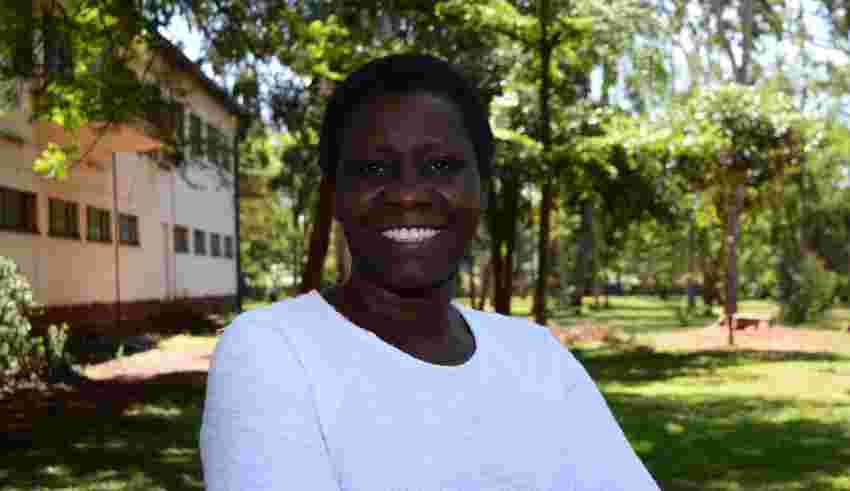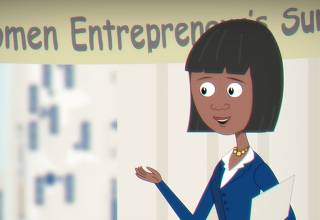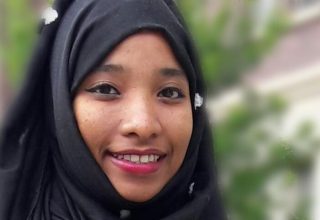
Jane Muthiga is a teacher by profession. A social entrepreneur however, is the title that she is comfortable with. “Back in our days, pursuing a career in education seemed like the best thing to do,” retorts Jane. “Teaching was relatively satisfying for me. After teaching for many years, one of my colleagues lightly remarked that I was not suited to be just a classroom teacher reaffirming my desire to leave the classroom and pursue entrepreneurship.”
As you would already know, the shift to entrepreneurship is not for the faint hearted, unless you are driven by a force that is beyond meeting your basic needs. “For me, getting into entrepreneurship was strongly fueled by my desire to provide solutions to problems. In my case, entrepreneurship allows me to solve social problems at my own pace which I find very fulfilling.”
Jane is the Founder and Executive Chairperson of Elimu Digital Media that owns Elimu TV, a free to air television station broadcasting secondary education and special programs. Elimu TV also streams online and can be well accessed through mobile phones in form of prerecorded videos. Although the signals coverage is limited to Nairobi and its environs, that is 150km, Elimu TV founded in 2013 has recorded enough success stories.

But let’s start from the very beginning before digital migration in Kenya that allowed room for multiple TV channels like Elimu. “My heart has always been for the orphaned child. As a teacher I was very aware of the challenges the orphaned child faces especially in access to basic needs and more so education. I therefore founded Network for Non-Formal Educational Institution; an NGO whose goal was to reach out to the orphaned children and provide them with an education that they would have otherwise not afforded.”
Well, great causes are often accompanied by challenges that every entrepreneur running a start-up are all too familiar with. With the knowledge that challenges are going to be there, does any entrepreneur consider running away? “I have veered away from my main calling severally but I got to a point in life where I made a covenant with God that social entrepreneurship in the area of education was going to be the course I take for the rest of my life.”
Jane has worked with various NGOs in the area of communication and education for so many years while still running her NGO. Through her work she was able to identify gaps in the education system, some of which are being met through the Elimu TV channel which is one of the products of Elimu Digital Media. Others include and are not limited to video conferencing and the recently launched secondary school placement program. Jane and her team have been able to merge technology and digital trends to meet these gaps.

“The Secondary School Placement Program matches students with suitable schools using their grade as a determinant. Parents/guardians or students SMS their test result and we are able to match them with schools which have already enlisted with us. Following the surprise release of the Kenya Certificate of Primary Education (KCPE), we have been overwhelmed by the response we have received.”
Starting a TV station is not something you would start off straight from attending a motivational talk or say reading a start-up bible cover to cover right? “After running my NGO for so many years I was able to acquaint myself with the industry and understand it better. In the course I as well interacted with so many people who were impressed by the work we were doing and offered directions. Former Permanent Secretary of Kenya’s Ministry of Information and Communication, Dr. Bitange Ndemo, is one such. When the anticipated digital migration dream finally became a reality, he and a team of partners advised us to jump in and apply for a TV license.”
What followed was a tedious process that would push the team to the limit until they were finally in the airwaves. Familiar with the saying about getting to the top and staying there? That would be a good analogy for digital broadcasting in Kenya, especially for new TV stations. While getting a signal is important, staying in the air is equally important and is currently the major challenge faced by a majority of new stations. Understandably, if these entrepreneurs had their ‘Haki Yetu’ (our rights) day on the streets, they would match up to the Communications Authority of Kenya (CAK) and demand a reduction or waiver of the relatively hefty amount they pay monthly to stay in the air.

How does TV make money? “We generate income from advertising, sponsorship and online selling. You would assume the Government agency would award us advertising considering we are a social enterprise geared towards education, something that Government is keen on but that is not the case. For a new TV channel to gain confidence with advertisers, it takes time.” The Elimu team has been lucky to secure financial support from Commonwealth of Learning among others such as Centum Foundation. The cost of running the media company is obviously very high. Elimu team comprises of qualified teachers, media production professionals (videographers and editors) and the administrative staff. The enterprise goes beyond the studio to the field where they work with communities in educating them on pertinent social issues.
“A perfect world for me would be a world where everyone affords their basic needs; even education; a world free of HIV AIDs that has orphaned so many children.” Elimu’s commitment to serve the people has had the team come up with intelligent yet simple ways of meeting the everyday challenges of ordinary parent/guardian. One of these is the M-Fund; a mobile program that allows its subscribers who are mostly parents/guardians to save up Kshs. 50 a day. The progressive savings can be later used to pay school fees or acquire something meaningful.

“We encourage people to register with us but it’s not a requirement. Our channel is watched by school going kids who wish to revise, domestic workers, teachers and anyone who would for one or other reason not make it to a formal classroom. The TV station has over 150,000 views and our Youtube channel has over 100,000 viewers every day. I would however want Elimu to grow and cover more counties. Counties like Turkana who have immense challenges in accessing education.”
Elimu’s main challenge has been finances and generating content. The content covers 10 subjects over the whole level of secondary education, that is Form 1, 2, 3 and 4. They include Mathematics, English and Literature, Chemistry, Biology, Physics, Business Studies, CRE, IRE, History, Geography, Kiswahili and Fasihi. A daily timetable of all 10 subjects broadcasts every day alongside a few commercial breaks. A repeat of the same is done at night. The timetable varies from day to day while ensuring all the subjects are taught every day.
“We have recorded immense success with students. We have several students who learnt with us score As in their final exam. My joy is when I see transformation, when through our programs we are able to restore hope. I look forward to a day when our children won’t be just watching Nigerian movies on TV but good educational content.”
Talking children, you would be delighted to know that Jane’s two children are now grown-ups. One of them is the CEO at Elimu and the other a landscape engineer. She also finds time to relax by travelling and listening to gospel and country music.

Did you enjoy this story? Post a comment below and on our Facebook page or Twitter #MKAZIJaneMuthiga.
We like to hear from you.
Contact or follow Elimu TV


















